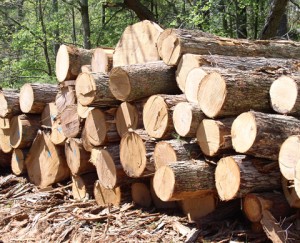Ghana’s forest sector employs over 270,000, but reserves dwindle to 1.6 million hectares
 Despite providing jobs to more than 270,000 people in both the formal and informal sectors, Ghana’s forests have continued to dwindle, from 8.6 million hectares at the turn of the Twenty First Century to about 1.6 million hectares today, raising questions about the efficient management of the country’s forests.
Despite providing jobs to more than 270,000 people in both the formal and informal sectors, Ghana’s forests have continued to dwindle, from 8.6 million hectares at the turn of the Twenty First Century to about 1.6 million hectares today, raising questions about the efficient management of the country’s forests.
The sector, estimated to contribute about 4 percent to the country’s GDP provides livelihood for about 650,000 people.
These issues and related matters within the country’s forestry sector came up for discussion during a forum organized jointly by the Editors Forum, Ghana (EFG) and environmental group, Friends of the Earth, Ghana (FoE) June 3, 2015 in Accra.
Making a presentation, Mr. Kingsley Bekoe Ansah of Civic Response, a civil society organization, noted that even though timber exports provided 10 percent of all foreign exchange for Ghana between 1990 and 2000; “this declined to 8.1 percent in 2005 and 1.3 percent in 2011,” he said.
According to Mr. Ansah, the contribution of chainsaw milling to the domestic market is estimated at $554 million, while the formal sector in terms of timber exports provided around $180 million between 2009 and 2010.
He however, expressed worry about the challenges inherent in the conversion of extant Leases into Timber Utilization Contracts (TUCs) and associated payment of Timber Rights Fees (TRFs).
He indicated that some school of thought believes that the regime amounts to double taxation. He argued further that, the fact that there was an element of retrospectivity with the TRF payment may be unacceptable.
“The industry and government have failed to resolve this for many years,” he said.
He said the payment of the fees is a requirement of the Ghana Voluntary partnership Agreement (VPA), and its delayed enforcement and implementation “has serious implications for Ghana’s timber, wood exports to the European Union.”
Mr. Ansah pointed out that this payment is also important for many reasons including helping the government to recruit the necessary and adequate revenue and other financial benefits from the exploitation of forest resources, and enables communities to gain financially through adequate social responsibility agreements with timber loggers.
Among others, he drew attention to the fact that one of the reasons for the LI on Off-Reserve Timber Rights Regulations is to introduce regulations for timber harvesting in off-reserve areas because the current Act 547 does not make any provision for the allocation of resources that do not qualify for TUC allocation through Competitive Bidding.
The forum also called for vigilance and adequate response to the situation in which local chiefs sell lands to timber companies without due reference to the laws governing such transactions and the future of their communities.
By Emmanuel K. Dogbevi
